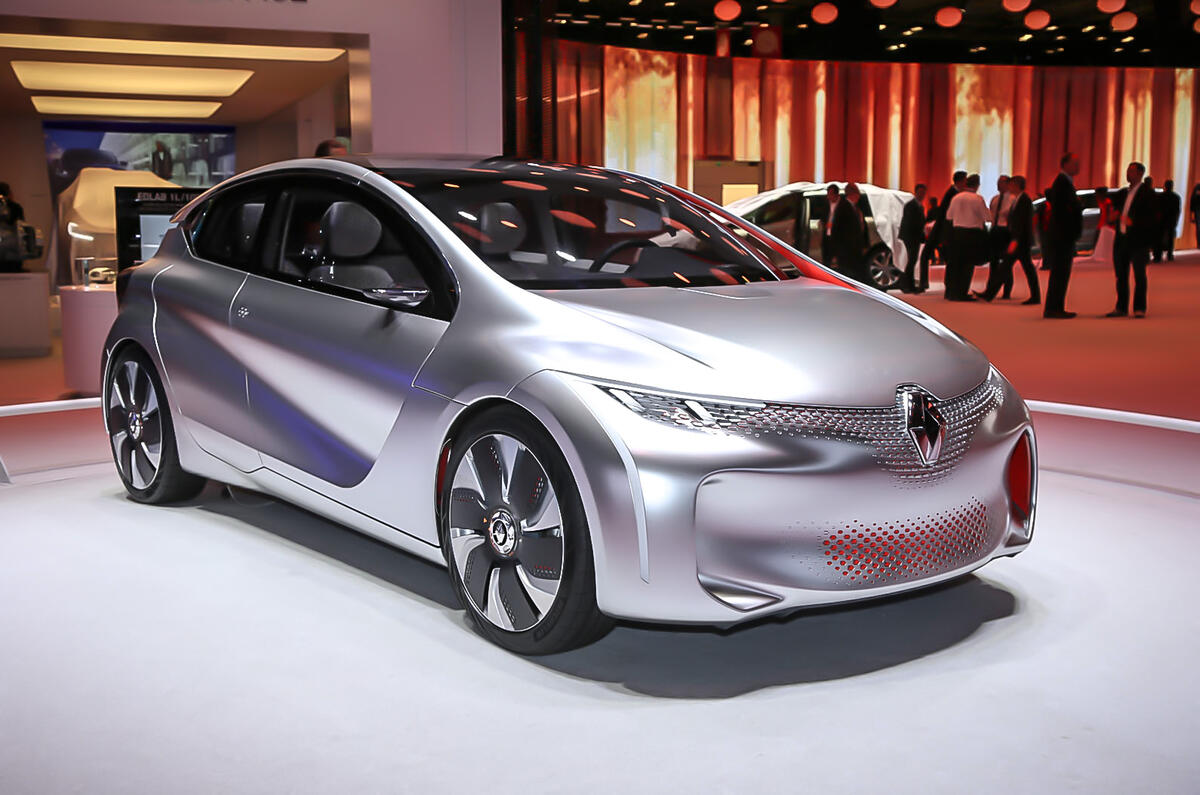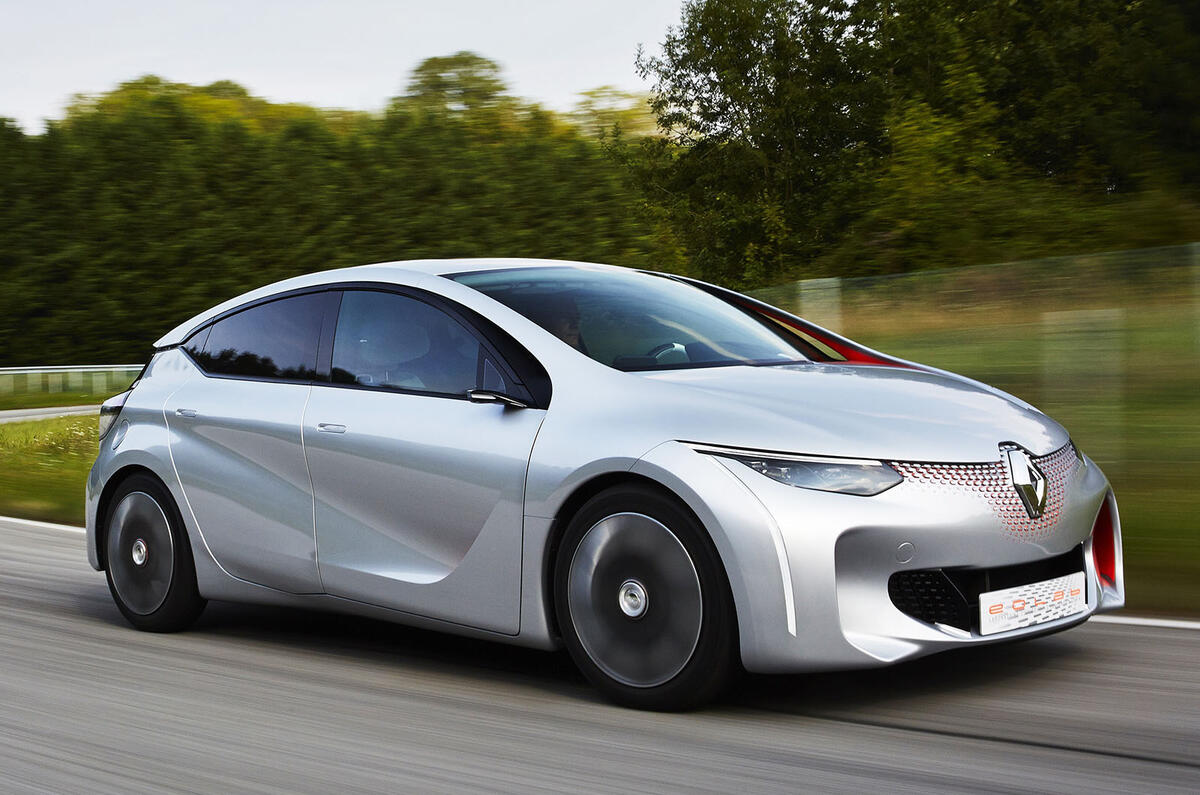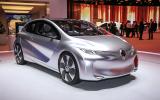Renault has revealed its new Eolab concept car, a petrol-electric hybrid which is claimed to average 282mpg and emit just 22/gkm of CO2.
The model, which made its public debut at the Paris motor show, acts as a preview to a new production B-segment model which will appear "within 10 years", according to Renault. It also answers a challenge set by the French government to put a car capable of returning 141mpg into production by 2020.
The French manufacturer says that in order to reach its frugal economy target, its engineers concentrated on reducing the concept’s weight, refining its aerodynamics and getting the best performance from its petrol-electric powertrain.
The results mean the concept weighs 955kg, about 400kg less than the current Renault Clio. It also comes with a drag coefficient of 0.235, some 30 per cent less than the Clio.
Other weight-saving elements include a new bonnet that is fixed and therefore lighter because it doesn't need any latching mechanism, a thinner windscreen and a magnesium roof that weighs 4.5kg.
Powering the concept is a hybrid power unit that comprises a 1.0-litre, three-cylinder SCe petrol engine, producing 74bhp and 70lb ft, and an electric motor, which is claimed to produce 54bhp and 148lb ft.
The permanent magnet electric motor is integrated into the housing of the car's compact three-speed transmission, which sends drive to the front wheels.
The first two speeds of the transmission are used only by the electric motor, with the third gear being driven by the internal combustion engine, and the automated control unit permits a blend of electric or hybrid outputs. Renault says this transmission offers numerous weight and cost-saving benefits compared to usual CVT or dual-clutch options.
A selectable ‘weekend’ mode allows the car to function as a conventional hybrid for greater range, with both power sources working together and the battery being charged via braking and deceleration.
The Eolab will be presented in two forms at the Paris show. One car will showcase the car’s technology and the other will be a design study. Renault says it has used “warm and sensual lines” to create the Eolab's exterior. The car sits on 19-inch carbon-aluminium wheels shod in Michelin rubber.
A series of active flaps and a front spoiler also open at speed, directing air flow and cooling the engine if necessary.
Inside, the three-door Eolab concept features four leather seats and a ‘floating’ centre console. An 11-inch touchscreen tablet, inspired by Renault’s production R-Link system, controls most infotainment functions and also provides real-time updates on how efficiently the car is being driven. Lights inside the car also change colour according to driving style.


























































Add your comment
Phrasing
I am just saying that's all.
Please, no.
Mind-blowing figures
They're weighted averages